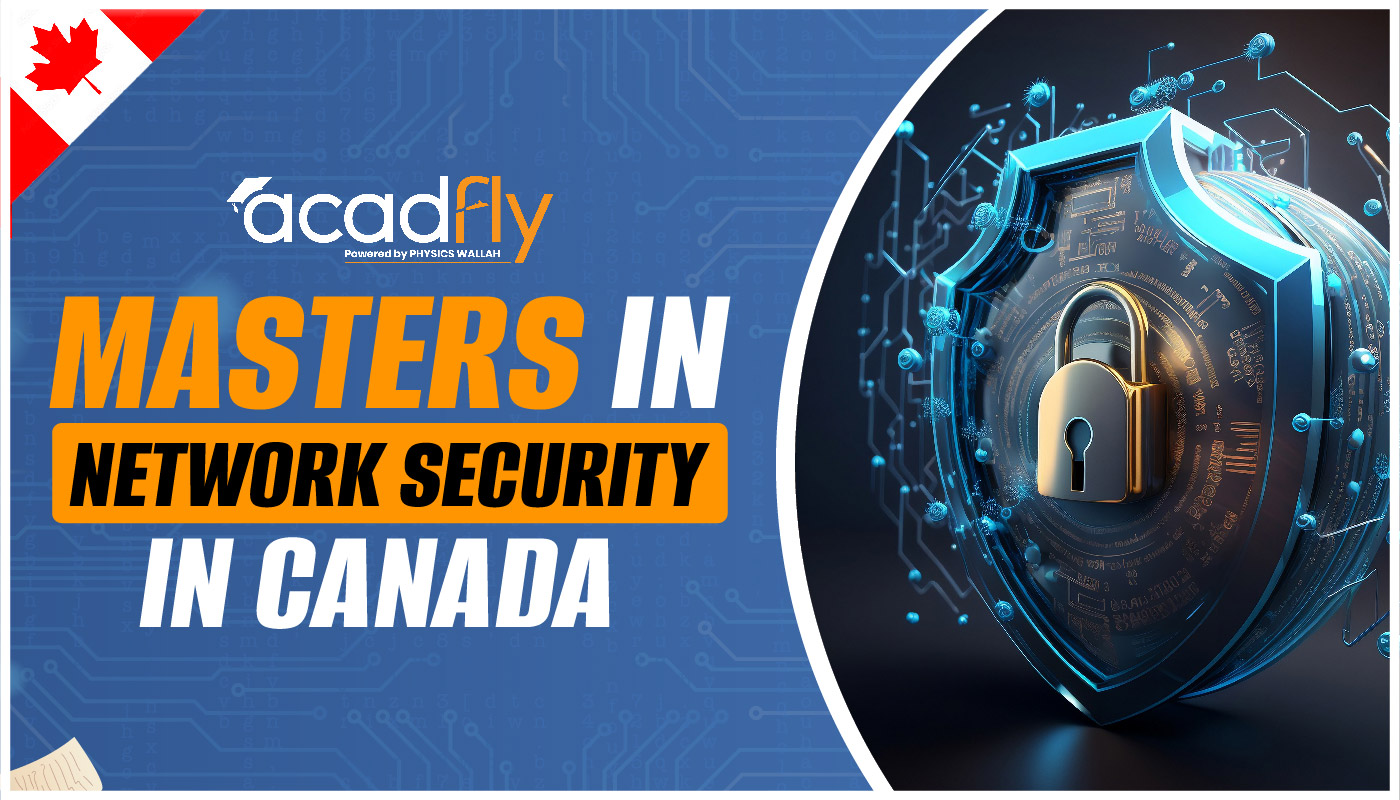

Masters in Network Security in Canada - Computer networking, like other professions in the computer technology business, is now in great demand. With a rising emphasis on web-based interactions, commerce, and transactions, as well as the most recent advances in wireless technology, network security is a must-have for all worldwide enterprises. The computer networking course in Canada seeks to teach students the principles of computer hardware, information systems, information security, computer programming, Windows servers, and operating systems.

In Canada, there are several computer networking courses available, such as computer network technology training, computer systems technician, and computer network technician courses. Different computer networking courses are available as bachelor's degrees, diploma programmes, graduate certifications, and master's degree programmes. Participants in the programme learn about the practical uses of local area networks (LAN) and wide-area networks (WAN).
In this post, We will also talk about the qualifying requirements, the programmes available, and the course fee.
Master's in Networking is a rising field in Canada, with options for majors and specialisations in Computer Science, Information Technology, and Electrical and Computer Engineering. It is also addressed by Masters in Data Science, a multidisciplinary area that includes data purification, processing, and analysis.
Students in the programme study about the most recent breakthroughs in network security, network administration, and computer security software. Many Master of Science and Engineering programmes include this subject. The main distinction is the depth of the topics addressed and the numerous disciplines examined in each programme.
The top colleges providing various programmes, including computer networking courses, in Canada are listed below:
Ryerson University
McGill University
New York Institute of Technology, NYIT, Vancouver
McMaster University
Fleming College
Concordia University
Dalhousie University
University of Calgary
Simon Fraser University
The qualifying requirements for a Master's in Networking in Canada vary depending on the college and the course chosen. However, the general criteria of the course are as follows:
The candidate must have a four-year bachelor's degree in computer science, mathematics, electrical engineering, or an area relevant to computer networking.
Indian students must have a minimum CGPA of 8.5 out of 10 or 67% in their undergraduate test.
Submission of Graduate Record Examinations and GRE results is not required by all top institutions; nonetheless, it is encouraged to submit GRE scores (minimum of 300) for a high chance of admission to the programme.
International candidates must additionally provide documentation demonstrating their English language competency. However, if a candidate has finished their high school and college courses in English, they are not need to submit English test results.
The English language requirements for overseas students differ per college. However, the range of acceptable English language scores is as follows:
IELTS: 6.5-8
TOEFL: 83-100
The general papers necessary for admission into a Canadian college are as follows:
• Copy of the application form.
• 2 letters of recommendation
• Resume/CV
• Electronic official academic transcripts from high school and college.
• Statement of purpose (SOP).
• A valid passport.
• Financial evidence of funding
• English language competence test results.
• Letter from Sponsor.
Canadian universities have three admissions every academic year: autumn, winter and spring. GRE and GMAT scores are typically used to determine admission to master's programmes. The admission procedure varies depending on the institution and the degree; nevertheless, the typical application process for universities in Canada is as follows:
Go to the Ontario Universities Application Centre (OUAC) or the university's website and complete the application form. A candidate must select three courses of their choice.
Look into the entrance and paperwork criteria for the specific course and university.
Gather all relevant papers, such as official transcripts, CVs, and English proficiency test scores, and upload them to the college's application portal.
Pay the non-refundable CAD 110 application fee, which may vary depending on the course.
Submit your application.
Once an applicant has submitted their application, they may follow its status via the online admission site. Once selected, an admission offer will be forwarded to the applicant's email address. To reserve a spot in the course, the offer must be accepted by a particular date, after which the tuition payments must be paid.
A Master of Computer Networking in Canada provides students with information and skills such as network security, network architecture, wireless network technologies, switching, and routing. After completing a computer networking degree in Canada, several universities recommend that their students take the MCSA and CCNA tests to get recognition from industry heavyweights Microsoft and Cisco. Students may also choose to pursue more study, such as a PhD.
Graduates of the programme can obtain careers in computer networks and information technology at top IT organisations including Cisco, IBM, Rogers Communications, and Bell Canada. After finishing the programme, graduates may expect to earn an average yearly income of around $67,000 USD.
If you wish to study computer networking in Canada, Physics Wallah can help you select the course you desire among Canada's best institutions and guide you through the admissions and student visa processes.
Q.1. Is network security in demand in Canada?
Ans: Because of a dearth of cyber security skills in Canada and throughout the world, cyber security specialists are needed throughout the government. Following the COVID-19 outbreak, Canada and its citizens have seen an uptick in cyber threats and ransomware assaults. There is a pressing demand for cyber skills across all sectors.
Q.2. Is it simple to find a security job in Canada?
Ans: With a security licence in Toronto, you may easily find work as a concierge, bodyguard, airport security officer, bouncer and so on. To obtain your security guard licence, you must complete 40 hours of professional training, which will be useful when applying for entry-level positions.
Q.3. How long is the security test in Canada?
Ans: Both the Security Guard and Private Investigator examinations are written and consist of 60 multiple-choice questions. exam appointments last two hours, with 75 minutes allocated for exam completion. The licence testing fee is $35.00 + 13% HST, for a total of $39.55.
